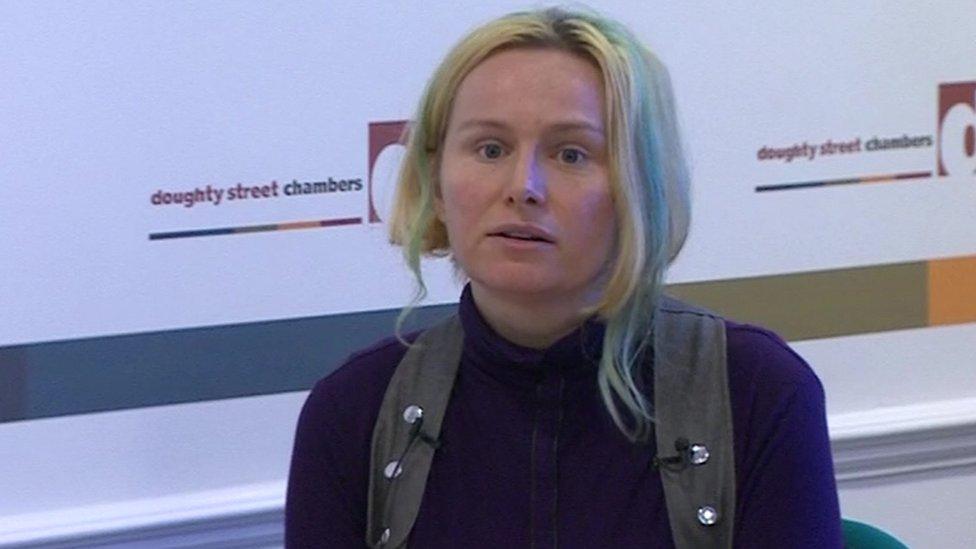Woman wins undercover officer case against Met Police
- Published

Kate Wilson had a two-year relationship with an undercover police officer
A woman tricked into a relationship with an undercover police officer has become the first to formally win her case against Scotland Yard.
Kate Wilson, an environmental campaigner, had a two-year relationship with Mark Kennedy.
The Metropolitan Police has settled seven other cases out of court - but this is the first time the force has dropped its defence before judges.
Ms Wilson told the BBC that she still did not know why she had been targeted.
Last November, Scotland Yard issued an unprecedented public apology and paid compensation to seven women who had relationships with undercover officers.
Speaking at the time, Assistant Commissioner Martin Hewitt of the Metropolitan Police said the relationships had been "wrong" and were a "gross violation of personal dignity and integrity".
Ms Wilson was the eighth member of that group and fought on in an attempt to discover more about what had happened.
On Friday last week, lawyers for the Metropolitan Police told a High Court judge that the force had already apologised and was formally withdrawing its defence against Ms Wilson's wide-ranging claims.
'Denied access'
The withdrawal of the defence means the force can no longer challenge any of Ms Wilson's legal action, including that police chiefs had been negligent in failing to stop relationships from forming.
But, in a legal twist, Ms Wilson's victory also means she may never see documents that explain how and why she was targeted.
Ms Wilson said: "It is now clear that wrongdoing goes far beyond the individual undercover officers.
"Yet we are denied access to any information about the extent of the intrusion into our lives, who knew and how far up the hierarchy it went.
"How many more women may have been affected by these abuses?
"How many more children may have been fathered by these undercover officers?
"The only way there can be real justice is if the inquiry releases the cover names and opens the files so that these women can come forward themselves."

Mark Kennedy was an undercover police officer
Campaigners predict the Wilson judgement could help seven similar cases - including one revealed on Monday.
A joint investigation by the BBC's Newsnight and the Guardian newspaper revealed a new undercover officer, known only as Carlo Neri, who proposed to an activist he met while infiltrating socialist groups.
Scotland Yard has tried to maintain a position of neither confirming nor denying the existence of specific undercover officers, other than those that judges have ruled should be named.
Campaigners say that unless police chiefs reveal how many officers had undercover relationships in the last 40 years, potential victims will never know the truth.
The forthcoming inquiry into undercover policing is expected to consider in the coming months whether more information can be disclosed to the public - or whether police chiefs have a duty to protect the identity of former undercover officers.
- Published20 November 2015
- Published20 November 2015

- Published24 October 2014